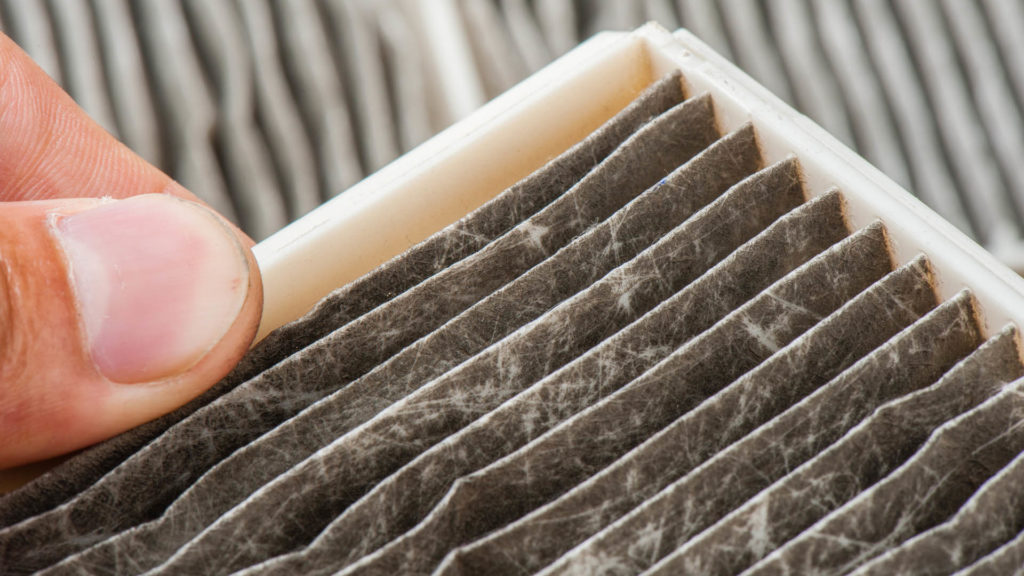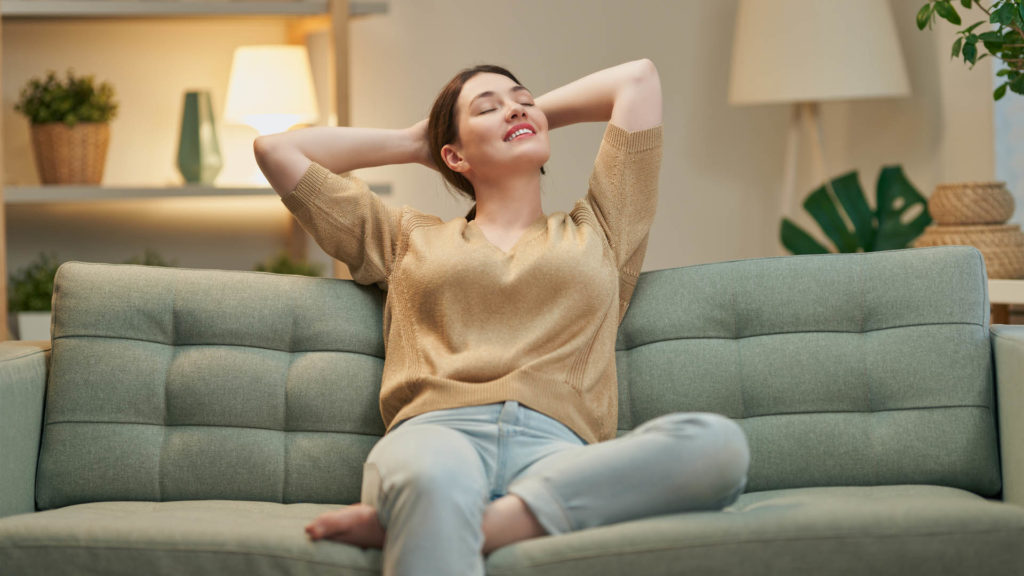
Some of the links on this page may link to our affiliates. Learn more about our ad policies.
Best Air Purifiers for 2023
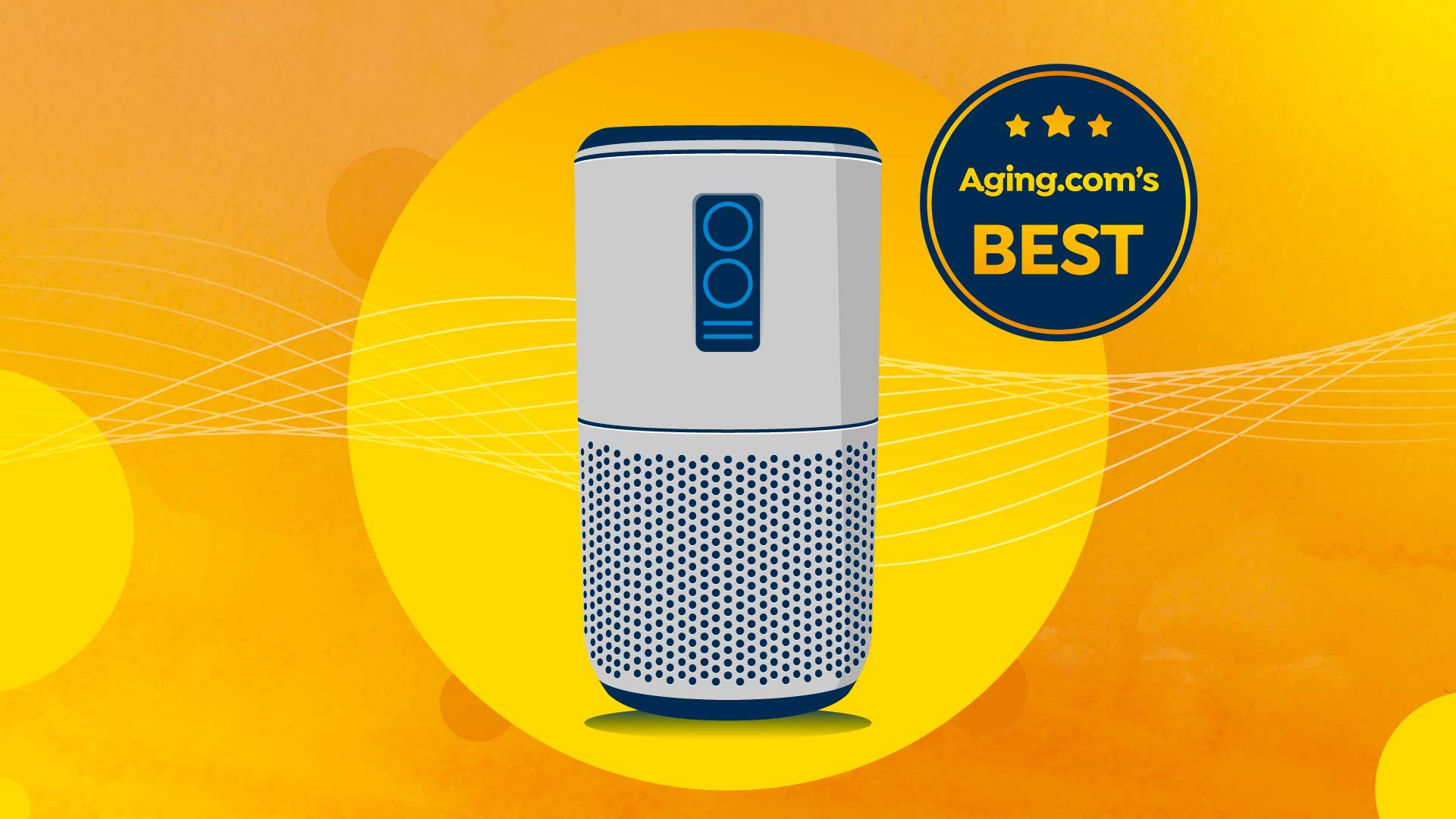
Best Overall

BreatheSmart 75i True HEPA
- Lifetime warranty
- Covers up to 1300 square feet
- Proven to improve sleep
Best for Killing Germs

Germ Guardian AC4825E
- UV-C light for killing germs
- Covers up to 153 square feet
- Three-year warranty
Best Multi-Purpose

Hot+Cold Formaldehyde HP09
- Offers heating and cooling feature
- Two-year warranty
- Covers up to 999 square feet
Our homes are generally considered our safe spaces. So, it’s hard to imagine the air circulating inside of it could be bad for us. The Environmental Protection Agency (EPA) says indoor air can be two to five times more polluted than the air outside. Couple that information with estimations that Americans spend as much as 90 percent of their time indoors and the result can mean taking in a lot of unhealthy air.
Why Do I Need an Air Purifier?
One of the best ways to ensure you’re breathing healthier air is to purchase an air purifier. Breathing air that’s polluted can cause many short and long-term health problems. The reaction can be immediate and cause things like itchy, watery eyes or nose and throat irritations. Air pollution can also cause dizziness, fatigue and headaches. Over the long-term, it can cause serious complications like chronic respiratory diseases, heart problems and even cancer.
Best Air Purifiers for 2023
- Best Overall: Alen BreatheSmart 75i True HEPA Air Purifier
- Best Budget Friendly: Honeywell HPA300
- Best for Allergies: Shark Air Purifier 4
- Best for Killing Germs: Germ Guardian AC4825E
- Best Multi-Purpose: Dyson Purifier Hot+Cold Formaldehyde HP09
| Air Purifier | Cost | HEPA Filter | Odor Control | Warranty | Multiple Fan Speeds |
|---|---|---|---|---|---|
| Alen BreatheSmart 75i True HEPA Air Purifier | $700 – $800 | ||||
| Honeywell HPA300 | $200 – $300 | ||||
| Shark Air Purifier 4 | $300 – $400 | ||||
| Germ Guardian AC4825E | $100 | ||||
| Dyson Purifier Hot+Cold Formaldehyde HP09 | $700 – $800 |
What Does an Air Purifier Do?
Air purifiers purify the air, capturing all the bad things floating around and sending cleaner, more purified air back out. There are many companies who make air purifiers for home use. The devices are portable and use electricity to operate an internal fan that pulls the smallest of unwanted particles out of the air, traps them in a filter and sends cleaner air back out into your room. The filtration process repeats itself several times an hour and improves the air quality inside your home.
The Best Air Purifiers of 2023
Alen BreatheSmart 75i True HEPA Air Purifier
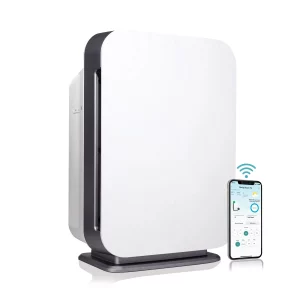
- Lifetime warranty
- Wi-Fi-enabled
- Covers up to 1300 square feet
- 5 fan speeds
- Energy Star certified
- Multiple color options
- Proven to improve sleep
Cost
$700 – $800
Overview
Unlike other companies in our ‘Best of’ list – Texas-based Alen only manufactures air purifiers. They put their whole reputation into building quality units that will work well and it shows with their consistently positive customer reviews and high industry rankings.
All Alen air purifiers have been proven to improve sleep by SleepScore Labs. If you’re looking for a solid air purifier for large spaces, Alen BreatheSmart 75i is your best bet – covering up to 1300 square feet. It’s a good option if you live in a home with an open floor plan. The HEPA filter in the 75i captures up to 99.99 percent of harmful particles in the air. It’s also equipped with an activated carbon filter to eliminate odors and gasses.
It’s whisper quiet, equipped with particle sensors for real-time feedback, and is Wi-Fi-enabled so it can be controlled through the Alen app. The unit has five fan speeds and particle sensors so it can automatically adjust to clean whatever is in the air at any given time. Filters are long-lasting, able to work effectively for up to 15 months. The unit will cost around $750, but Alen is the only air purifier company that offers a lifetime warranty for its products.
Honeywell HPA300
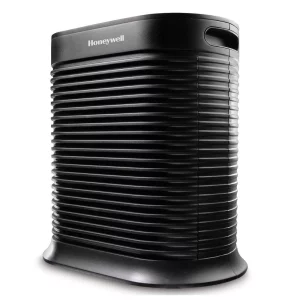
- Covers up to 465 square feet
- 4 fan speeds
- Energy Star rated
- 2 color options
- Five-year warranty
Cost
$200 – $300
Overview
Honeywell’s most popular and likely its best air purifier is the Honeywell HPA300. It can cover up to 465 square feet, so it’s a good option for a larger room. It’s a top-notch, basic air purifier that’s easy to operate. The unit has four fan speeds, an auto-off timer option and a way to dim the control panel for lights out sleeping. It’s equipped with a pre-filter and a HEPA filter that generally need to be replaced every three months. The HPA300 will cost between $200 and $300, making it a very budget-friendly model. It comes with a five-year warranty.
Shark Air Purifier 4
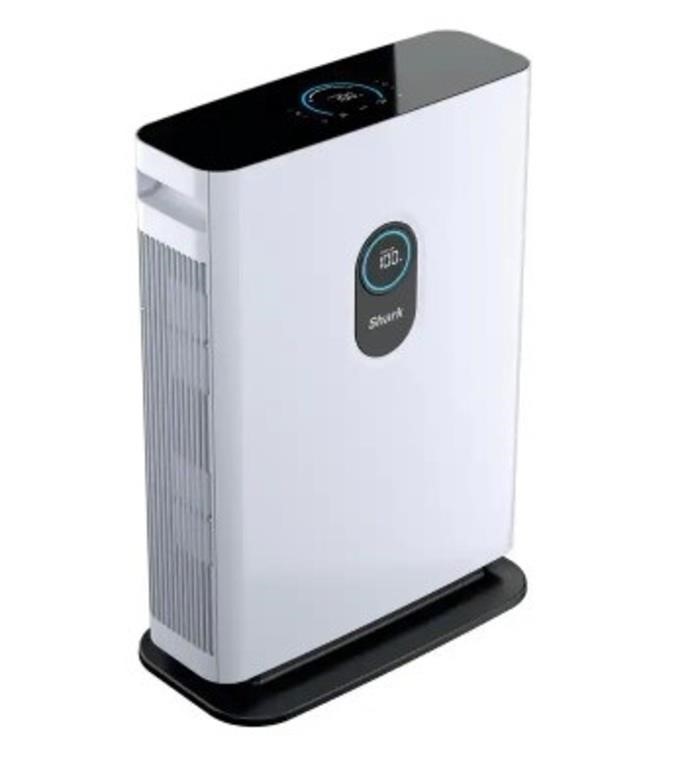
- 6 fan speeds
- Covers up to 1000 square feet
- Remote control
- Two-year warranty
- 60-day money back guarantee
- One color option
Cost
$300 – $400
Overview
The Air Purifier 4 is Shark’s newest offering in air purifiers. The sleekly designed unit works with four high-speed, micro-fans that evenly distribute air through the filter and in your home. It has an anti-allergen HEPA filter to rid your home of allergy triggers and is equipped with an advanced odor guard to eliminate odors, as well.
It uses its Clean Sense IQ technology to monitor the quality of the air, adjust accordingly and give you real-time feedback, so you always know the air quality in your home. It can be operated with a remote control, will cost between $300 and $400 and has a two-year warranty. Shark also offers a 60-day money-back guarantee. If you aren’t satisfied with the air purifier’s performance you can return it for a full refund.
Germ Guardian AC4825E
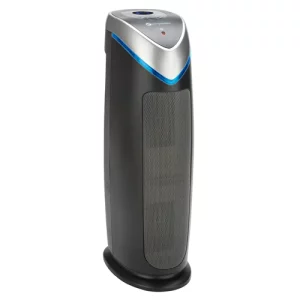
- 4-stage filtration system
- UV-C light for killing germs
- Covers up to 153 square feet
- 2 color options
- Energy Star certified
- Three-year warranty
Cost
$100
Overview
The AC4825E is one of Germ Guardian’s most popular models. Likely because of its cost – which is right at $100. It has three stages of filtration – a HEPA filter for small particles, activated carbon for odors and a UV-C light for bacteria, germs and viruses. Most air purifiers aren’t equipped with technology to kill bacteria, germs and viruses. The unit does have a smaller coverage area than many air purifiers – covering up to 153 square feet four times an hour. Filters need to be replaced every six to eight months.
Dyson Purifier Hot+Cold Formaldehyde HP09
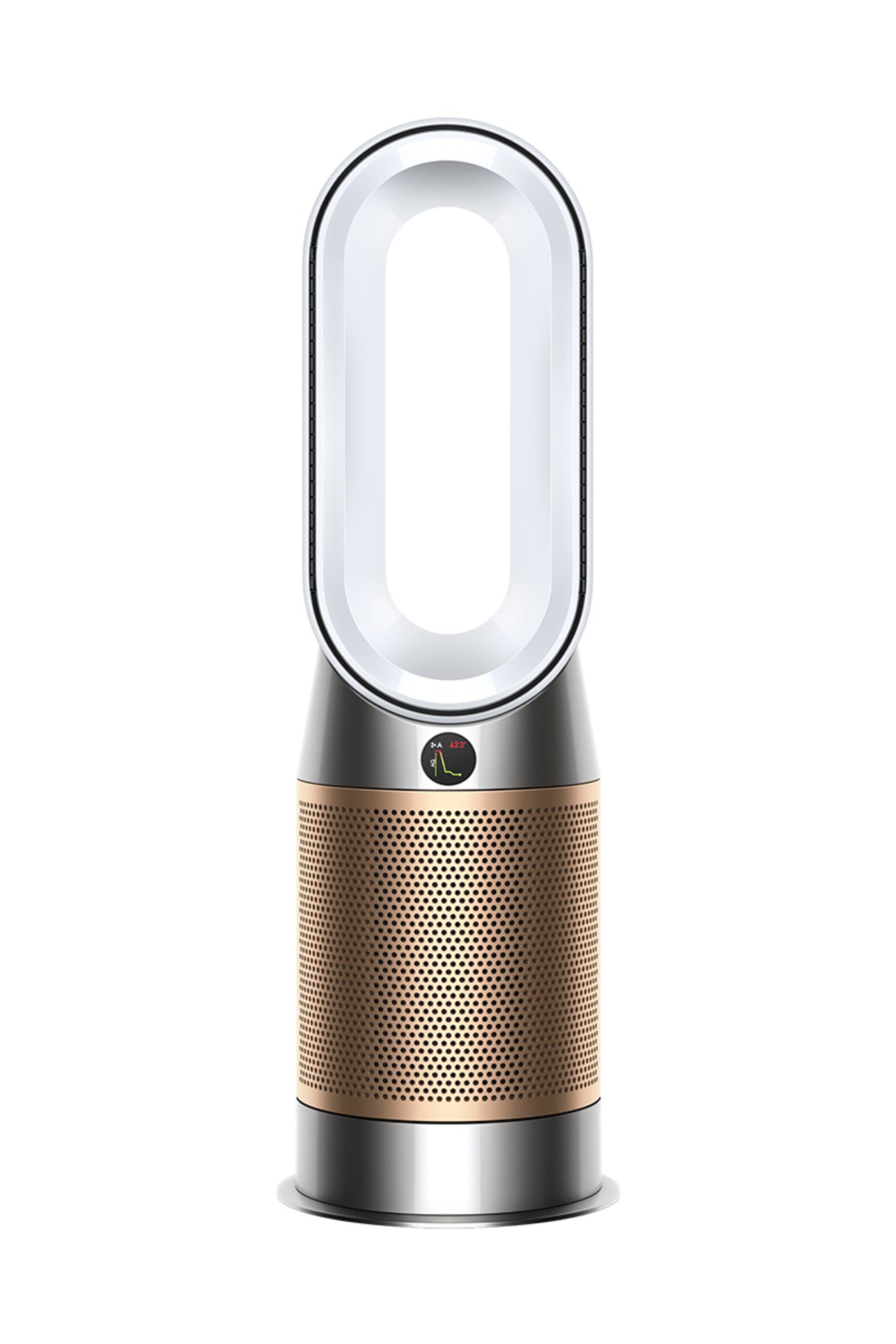
- Offers heating and cooling feature
- Specific filter to detect and remove formaldehyde
- 2 color options
- Two-year warranty
- 10 fan speed settings
- Money back guarantee
- Free shipping
- Covers up to 999 square feet
Cost
$700 – $800
Overview
The Dyson Air Purifier Hot+Cold Formaldehyde HP09 is a great choice for multi-purpose use. Not only does it purify the air, it can cool and heat the room. The device also contains a filter designed to detect and remove formaldehyde from the air. Formaldehyde occurs naturally and can cause severe respiratory issues. The unit is equipped with a HEPA filter, as well as an activated carbon filter to get rid of odors, gasses and VOCs. The air purifier has sensors that analyze the air and give you real-time feedback of what’s floating around. It connects to and can be controlled through the Dyson Link app. It’s also compatible with Amazon’s Alexa, Apple’s Siri and Google Home.
Are Air Purifiers Good for Allergies?
One of the main reasons people choose to buy an air purifier is because of allergy issues. Allergies occur when our bodies determine something is harmful to us, even though it isn’t and it causes our immune system to respond. The result can be coughing, a runny, stuffy nose, sneezing, and itchy, watery eyes.
Some of the most common allergy triggers are things we are exposed to everyday inside our homes.
- Cockroaches
- Dust
- Mold
- Particulate Matter
- Pet Dander
- Pollen
- Tobacco Smoke
All of these can cause seasonal or chronic allergy issues. They can also have a severe impact on those who suffer with asthma and other chronic lung and respiratory conditions. Because these particles are so small, we often can’t see them with the naked eye. Air purifiers are designed to pull particles this size out of the air and eliminate them from the room – sending out more breathable, healthy air.
What Should I Look for When Purchasing an Air Purifier?
When looking for an air purifier, there are several things to keep in mind to ensure you get one that best suits your needs.
- Make sure the air purifier operates with a HEPA filter. HEPA is the gold standard for air purification.
- Make sure it will cover the size of the room you plan to put it in. Know the square footage of the room where it will go and make sure the box says it will cover that much space.
- Consider features that are important to you. Whether it’s Wi-Fi-enabled, contains an air quality monitor, or wheels to make it more mobile – look for features that you want in a product.
- Consider the noise level. Look for air purifiers that have white/pink noise/whisper quiet options so it won’t be too loud.
Why is a HEPA Filter Important?
The only air purifiers you should consider are those that operate with a pleated, mechanical HEPA filter. HEPA stands for high efficiency particulate air and it’s designed to pull 99.97 percent of dust, dirt, pet dander, pollen and many other smaller particles from the air. The filters have to be tested, approved and meet U.S. government standards to be labeled as HEPA filters.
HEPA filters work by forcing air through a web of fine mesh which traps the particles, keeping them from re-entering the air. They have to be replaced regularly in order to be the most effective. Most air purifiers will let you know when it’s time for the filter to be changed.
Be sure to stay away from packaging that says “HEPA-like” or “HEPA style.” They aren’t true HEPA filters and won’t meet the standards needed for good air purification.
What Other Types of Filters Can Be Found in Air Purifiers?
Many air purifiers will contain more than one filter. In addition to a HEPA filter, there are other types of filters you may want to consider depending on what you’re looking for.
Pre-filter
Many air purifiers will have what’s called a pre-filter. It’s the first line of defense and is designed to catch larger particles to help extend the life of the main filter. Many pre-filters are washable, can be vacuumed and are permanent.
Activated Carbon Filter
In addition to HEPA filters, many air purifiers are equipped with activated carbon filters. They are extremely porous and can trap and absorb odors, gases and volatile organic compounds (VOCs) from the air.
UV-C or Ultraviolet Light
UV-C light is a technology used in some air purifiers. After the dirty air passes through the HEPA filter, it goes into a small internal chamber in the air purifier where the UV-C light is located. The light will kill bacteria, mildew, mold, and viruses if there is direct and prolonged exposure.
Ozone
Some manufacturers make air purifiers that emit ozone. Ozone is used to remove odors from the air, leaving behind a ‘fresh’ smell. But you should not buy an air purifier equipped with ozone. Breathing in ozone is not safe. The smallest amounts can cause coughing, chest pain, throat irritation, and shortness of breath, as well as damage to your lungs. Air purifiers that emit ozone have actually been banned in the state of California and cannot be sold there.
Where’s the Best Place to Put an Air Purifier?
Air purifiers can be placed anywhere in your home. But it’s best to choose the room you spend the most time in so you will receive the most benefit from it. Most people opt to put the air purifier in the bedroom, but the living room is a popular second choice.
Here are a few things to keep in mind when deciding where to place an air purifier:
- In the bedroom, put the air purifier close to the bed so the air will circulate best around you while you’re sleeping.
- In the living room, place the unit close to a doorway, window or wall because that’s where the air flow is the highest.
- If the air purifier is a small unit, place it a few feet off the ground. Larger units can sit on the floor.
- Never put an air purifier behind furniture or curtains or under a table. It won’t be able to function properly if its hidden.
- Keep it away from your TV or stereo system. Other electronic devices can cause interference and keep your air purifier from working correctly.
How Much Do Air Purifiers Cost?
Air purifiers can be a significant investment. Depending on the make, model and features you choose, air purifiers can cost as little as $100 or more than $1,000. And when you factor in the recurring cost of replacement filters, it certainly can be considered a long-term investment. Most air purifiers only work with the company’s own filters. Using an off brand can often void the warranty or result in the air purifier not working correctly.
You’ll have to determine the amount you’re willing to spend to achieve the benefits an air purifier can provide. It’s important to note a more expensive unit doesn’t always mean a better product. Many of the budget-friendly models are some of the best air purifiers on the market.
Conclusion
Consistently breathing in unhealthy air can cause short-term and long-term health problems. Being able to filter out particles that pollute the air inside our home is important to overall wellness. Air purifiers are the best way to do that. They are designed to pull the smallest of particles out of the air, forcing clean air back out. They can be a significant investment, but are worth the cost in the long run to help you and your family stay healthy.

